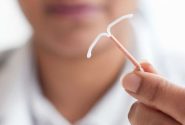FRIDAY, May 31, 2024 (HealthDay News) — (Tasrir) — Conducted in the spring of 2023, the survey of 2,300 Americans found 32% saying they’d dealt with the loss of someone they knew due to fatal overdose.
Expanded into the full U.S. population, that’s the equivalent of nearly 83 million people now personally affected by such tragedies, said a research team led by Alene Kennedy-Hendricks.
“The drug overdose crisis is a national tragedy,” said Kennedy-Hendricks, an assistant professor of health policy and management at the Johns Hopkins Bloomberg School of Public Health in Baltimore.
And too often, the pain of losing a loved one to overdose is hidden, she said.
“Although large numbers of U.S. adults are bereaved due to overdose, they may not be as visible as other groups who have lost loved ones to less stigmatized health issues,” Kennedy-Hendricks explained in a Hopkins news release.
The new findings were published May 31 in the journal JAMA Health Forum.
According to the U.S. Centers for Disease Control and Prevention, the death toll from drug overdoses has already passed the 1 million mark since the 1990s. The crisis is only accelerating, with over 100,000 lives lost to overdose each year over the past few years.
The advent and abuse of powerful prescription opioids such as oxycodone helped kick off the trend, followed by a flood onto the black market of sometimes lethal opioids such as heroin or fentanyl.
The downstream effect has been incalculable losses to Americans.
Nearly 19 percent of the survey participants, representing an estimated 48.9 million adults nationwide, said the person they lost to overdose was a family member or close friend.
These tragedies hit Americans of all classes, although the less affluent were more affected. Forty percent of people surveyed from households making less than $30,000 per year said they’d lost someone to drug overdose.
However, even among better-off Americans — those making over $100,000 per year — one in four (26%) said they’d faced a similar tragedy.
These statistics did not vary based on political party affiliation, and most people affected by drug-related deaths had a “greater odds of viewing addiction as a very or extremely important policy priority,” the researchers said.
“This study contributes new evidence that the addiction crisis and the losses that come with it are common across Americans, but the burden is greater among those who are more economically precarious,” said study co-author Catherine Ettman, an assistant professor of health policy and management at Hopkins.
She believes that, during this election year, “addressing addiction can be a unifying theme in increasingly divided times.”

















